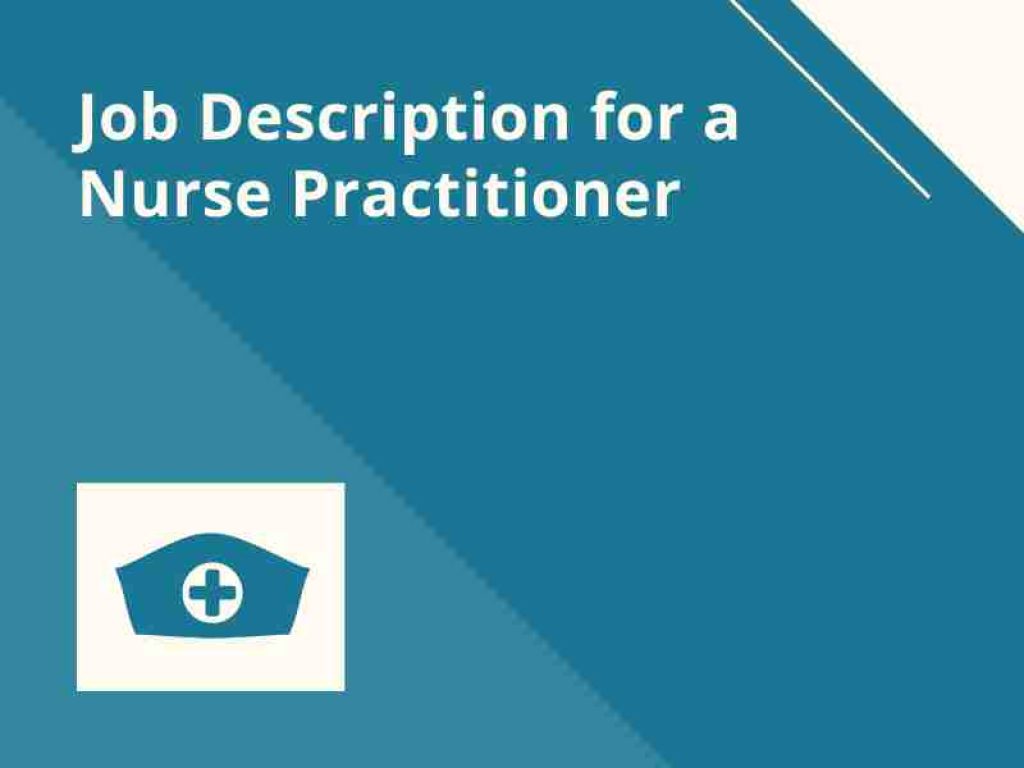
How To Hire A Nurse Practitioner?
In this post, we’ll go over How to hire a Nurse Practitioner? The Duties of a Nurse Practitioner, the skills and knowledge they should have, and the qualities an employer should seek out when hiring. We’ll also discuss how pre-employment testing may help employers select the best individuals based on their skills and talents.
What are the expected competencies of a nurse practitioner?
While a recruiter’s expectations for a nurse practitioner’s typical duties will likely differ depending on the sort of facility in which they work, there are a few things they should be able to do regardless. Since a nurse practitioner may be a patient’s first point of contact, they must be able to evaluate, diagnose, and treat a wide range of acute and chronic conditions, including diabetes, illnesses, and infections, with a special emphasis on primary care procedures like immunizations and wound closures.
Diagnostic tests, such as x-rays and electrocardiograms, can be read and interpreted by nurse practitioners. As the ultimate healthcare game-changer, the nurse practitioner executes a tailor-made healing strategy that perfectly aligns with the patient’s requirements, scientific principles, healthcare protocols and quality care standards. In medicine, nurse practitioners often team up with other skilled professionals and specialists to tackle tricky cases that need extra brainpower!
Nurse practitioners hold power to prescribe medicine, and equip patients with vital intel on the right dosage and how to administer it. They’re a cut above in their field as compared to other nursing designations because they also make sure patients are aware of possible food or drug interactions – talk about being thorough!
Nurse practitioners bring an arsenal of knowledge and skills to the table to promote wellness, reduce risks, and deliver crucial information on disease prevention. From self-care guidance for those with long-term ailments to handling therapy interventions and diagnostic tests, these health experts have you covered.
Although a nurse practitioner’s primary duties involve direct patient care and frequent communication with other medical professionals, they must also be able to accurately record patient information, organize follow-up appointments, and identify when to refer patients to specialists. In most cases, nurse practitioners are responsible for every aspect of a patient’s care, including diagnosis, treatment, and the management of other medical professionals.
How to hire a nurse practitioner?

When deciding on a nurse practitioner, it’s important to investigate the following options:
Why hire a nurse practitioner?
An effective nurse practitioner assists with patient care, appointment scheduling, and record keeping. The duties of a nurse practitioner include the following:
- Screen new patients and examine them physically.
- Keep and update patient records.
- Evaluate test results, plan follow-up appointments, and discuss treatment options.
What is a full-time vs. freelance nurse practitioner?
Freelance nurse practitioners can fill in for regular nurse practitioners when sick, on call, or otherwise unavailable at hospitals and clinics. When the hospital is bursting at the seams with patients, it has the option to bring in some extra hands to lend a hand in patient care. Don’t worry, these freelancers are highly skilled and ready to help tackle any medical emergency thrown their way!
Home nursing care provided by a private nurse practitioner may be preferable to hospitalization for various reasons. Several medical centers have full-time nurse practitioners (NPs) on staff for patient care and administrative tasks that physicians need more time for.
What are the nurse practitioner levels?
Each level of responsibility in the nursing profession increases with rank. These positions include:
Nurse practitioner (NP):
A nurse practitioner can order and analyze laboratory tests, formulate medical diagnoses, and dispense medication. A physician and a nurse practitioner may operate together.
Registered nurse (RN):
A registered nurse gathers information about a patient’s medical history, monitors their well-being, runs specialized diagnostic procedures, and gives them medication.
Advanced practice registered nurse (APRN):
APRNs can prescribe medication, conduct diagnostic tests, and make referrals to experts.
The licensed practical nurse (LPN):
The licensed practical nurse provides routine patient care, which may include measuring blood pressure, starting IV drips, inserting catheters, and changing dressings.
Certified nursing assistant (CNA):
Certified Nursing Assistant (CNA): They can assist patients with eating, drinking, bathing, dressing, and restroom use. Caregiver support workers (CNAs) may also be authorized to prescribe medication.
Where to find nurse practitioners?
You may use various recruitment methods to find the ideal nurse practitioner for your company.
Hire from within:
To find out if any of your nurses are interested in furthering their education to become nurse practitioners, you should poll them.
Network:
Facilitate communication between different medical facilities and members of the nursing community. Anyone interested in learning more about nurse practitioners in the job market may find this useful.
Get on the internet and do some digging:
Some well-established nurse practitioners may be currently searching for employment on various online discussion boards.
Put up signs advertising for assistance:
Posting fliers around town will get the word out and attract the attention of qualified applicants.
Put up a job ad on the web:
To identify and attract qualified nurse practitioner applicants, consider advertising a position on Indeed.
What qualities does an ideal nurse practitioner possess?
Nurse practitioners play a crucial role in every hospital or clinic. Finding the right Nurse Practitioner requires knowing what to look for in a candidate.
- Having a master’s degree in nursing is highly recommended.
- Have a cumulative nursing experience of at least five years.
- Valid registration as a nurse practitioner in the state where you work.
- Ability to work in a team and take charge of choices.
- Experienced with electronic health records (EHR).
- Fluency in both written and verbal forms of communication.
What skills are most valuable for a nurse practitioner?
While choosing a nurse practitioner, it is important to search for these and other skills and a wide range of other aptitudes and competencies. They are crucial since they can determine whether or not a candidate is hired. Ideally, you want to find people who can show that they have the following skills and experiences:
Expression and Understanding in Speech:
Effective nurse practitioners have excellent listening and communication skills that allow them to comprehend and respond to patients’ descriptions of their symptoms.
Effective Understanding and Expression in Writing:
The nurse practitioner must keep detailed notes on each patient’s care, so they must have strong writing skills. Furthermore necessary is the ability to read and comprehend the works of others.
Reasoning via Induction and Deduction:
A nurse practitioner’s use of logic in patient care is crucial. The nurse practitioner will benefit from combining inductive and deductive thinking skills when attempting to answer problems based on the available data.
Memorization:
A nurse practitioner’s position relies heavily on her ability to remember long- and short-term details, such as the common signs and symptoms of various diseases, appropriate treatments, and helpful information to impart to her patients.
The Sensitivity to the Problem:
The most effective NPs are compassionate people who can understand and empathize with their patients and coworkers. They may not know the solutions, but they can identify issues when they arise.
What skill and personality assessments might help find a qualified nurse practitioner?

Although nurse practitioners may be required to use the software during their workdays, such programs are typically developed for the company’s needs. They are aimed at facilitating communication between various healthcare experts. But there are skills that a recruiter might evaluate potential hires on.
Correction of Errors:
A nurse practitioner with a keen eye for detail will be better able to diagnose and treat issues in their earliest stages. This test determines how well a candidate pays attention to detail.
Reasoning with Numbers:
A nurse practitioner’s primary duties involve communicating with and educating patients, but they must also be capable of performing simple mathematical operations.
Valid Argumentation:
The logical reasoning test evaluates the applicant’s ability to make sound logical decisions and follow a line of reasoning to its logical conclusion.
Language-Based Reasoning:
Reading, comprehending, and interpreting data require fluency in the language is applied.
Evaluation in Context:
The situational judgment exam is a type of job interview that simulates actual workplace situations to reveal a candidate’s typical demeanor on the job. Questions will vary, but how candidates respond to them will reveal their judgment and how they handle workplace issues.
What is the procedure for creating a job description for a nurse practitioner?

Finding capable applicants for nurse practitioner positions requires a detailed description. An effective job description for a nurse practitioner will provide the following:
- A clear definition of the role.
- A comprehensive list of duties and responsibilities.
- Necessary and desirable abilities.
We recommend including some or all of the following keywords in your nurse practitioner job description to increase its discoverability. According to statistics collected by Indeed, the following are the most clicked-on search phrases related to nursing practitioner jobs:
- Nurse practitioner
- Physician Assistant
- Family nurse practitioner
- Pediatric nurse practitioner
- Psychiatric nurse practitioner
- Telemedicine nurse practitioner
- Advanced practice registered nurse
- Women’s health nurse practitioner
FAQ’s
How do you interview Nurse Practitioner candidates?
Finding a qualified nurse practitioner requires careful screening of applicants and in-depth questioning of their experience and knowledge throughout the interview process. Excellent nurse practitioners will be at ease fielding inquiries about:
- Ability to provide high-quality medical treatment to patients.
- Proven track record in managing medical schedules and patient records.
- The extent to which they have improved the quality of patient treatment, hence contributing to higher company revenue and profits.
What type of NP is in the highest demand?
The following list, presented in no particular order, comprises the most sought-after subfields in nurse practitioner practice.
- Health Care for Family Practice.
- Primary Care for Older Patients.
- Psychological and Mental Wellness.
- Acute Care for Older People and Adults.
- Caring for Children is a Primary focus.
- Professional Nurse Specialized in Pulmonary Medicine.
- Pediatric Acute Care Nurse Practitioner.
- Nurse Practitioner at Home.
How can You prepare interview questions for a nurse practitioner position?
You can ask your potential employer any of the following questions.
- To what extent do you consider yourself successful in this role?
- Is it required of me to act as a guide?
- To what end is the current nurse practitioner leaving her position?
- To what do you attribute the difficulties at your firm in the coming year?
In what ways should a nurse practitioner strive to excel?
We are collecting detailed personal, family, and medical history. Doing a complete physical examination taking into account age medical history and according to the patient’s age and medical history, performing or ordering preventative and diagnostic procedures and locating potential dangers to one’s health.
Do nurse practitioners perform surgery?
Many nurse practitioners must learn to use and interpret various diagnostic instruments, especially those in general care or other specialist areas. Though they can’t undertake major operations, NPs are sometimes called upon to carry out less-than-minor incisions for patient care.







